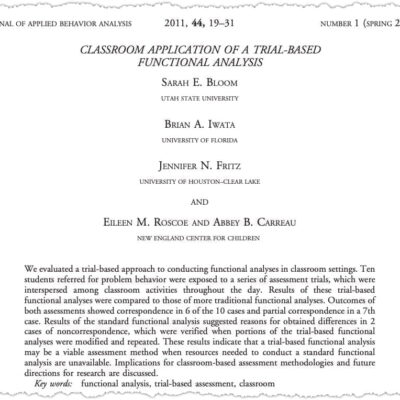Problem Behavior is Predictable and Preventable
Timothy Vollmer
Observers often perceive problem behaviors like self-injury or tantrums as unpredictable, but scientific evidence suggests otherwise. This presentation from the 2015 Michigan Autism Conference highlights five pieces of evidence demonstrating that problem behavior is often predictable and orderly, along with the proposal of a model for behavioral assessment and intervention based on these findings.
This product has been discontinued.
You may also like…
-
Article Quiz

1 BCBA CEU
Classroom Application of a Trial-Based Functional Analysis
Sarah E. Bloom, Brian A. Iwata, Jennifer N. Fritz, Eileen M. Roscoe, & Abbey B. Carreau4.69 out of 5(29)$9.99 Add to Cart Quick View -
Interactive Video

1.5 BCBA CEUs
B.F. Skinner on Education
B.F. Skinner4.97 out of 5(31)$14.99 Add to Cart Quick View -
Interactive Video

1.5 BCBA CEUs
Functional Communication Training: Research Foundations
Wayne Fisher5.00 out of 5(2)$14.99 Add to Cart Quick View

